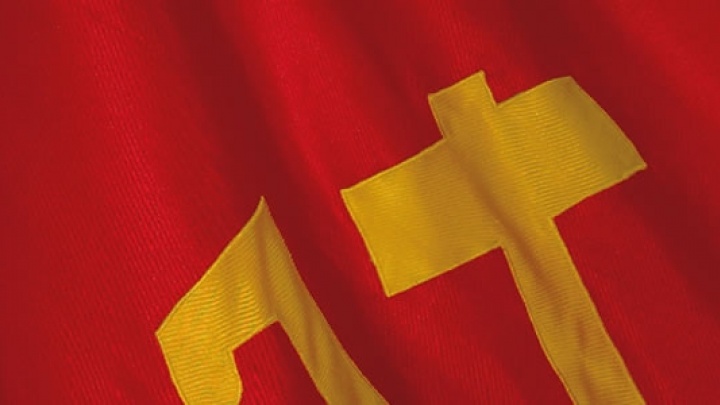"Avante!" Article by Rui Paz, collaborator of the International Department
Two great demonstrations in Berlin and Stuttgart, which took place last week-end, scored a new popular contest wave against Chancellor Angela Merkel’s government anti-social policy. In a country where 10% of the population holds 60% of the whole wealth, faces more and more difficulties to convince workers that capitalists , bankers and speculators might be considered as “ social partners”, a principle which in theory, the German State stands on. In a document addressed to the press, the German Communist Party (DKP) asks “why the 800 000 millionaires and multimillionaires in Germany ought to contribute for the crisis surmounting, instead of penalizing the unemployed, retired, youth and the middle class?”
President Horst Kohler’s resignation, two weeks ago, is but the most recent and visible episode of the severe political, economic and social crisis, which beginning remounts back to the so-called “reunification” days, and was accelerated by the anti-social and bellicose positioning of Social-Democrat Schroder and the Fisher Greens. In fact, and yet during the Merkel´s and Liberals new administration setting up stage, following the great coalition with the SPD´s defeat, Jung, the ex-minister of Defence, was obliged to resign in order to conceal important data on the greatest massacre committed by the German army, since 1945. But Guttenberg’s statements, his predecessor, on the killing by the NATO Air Force, under the German Colonel Klein’s command, during which 140 people, the majority women and children, had been “ a military adequate act” rose a wave of protests and indignation. A few days after, the minister had to correct such a statement and remove from office the Bundeswehr’s inspector-general, to avoid his own resignation. The Euro crisis and the speculators attack to the Greek state finance followed, in which the German Government , under the pretext of helping Greece, showed to be more concerned in guaranteeing the Deutsche Bank and other German banks ‘s credit to Athens. Christian-Democracy, in March, suffered a severe electoral defeat (minus 10 percentual points) within North-Renania and Westefalia, the major population state, which resulted in the Government’s isolation. Never, within the Federal Republic of Germany, such a swiftly loss of a government’s credibility had taken place.
Finally, the President’s leak to the truth irritated Social-Democracy and the Greens, which, since the Yugoslavian aggression have been proclaiming that the Bundeswehr is a kind of social service for foreign purposes. And also Christian-Democracy, for which the German army, besides the “struggle against terrorism”, has the noble mission of educating the culturally inferior peoples, unable to rule themselves under the principles of “democracy”, was not appreciated with such analytical overture.
But nobody, ever since the times of the vital space doctrine, with which Germany justified the launching of World War II, would ever imagine listening to a President of the Republic, in Berlin, 65 years after, to openly declare that the German economic and commercial interests are the military missions and wars abroad major purpose, confirming Lenin’s analysis on the imperialist wars character and demasking those who have been, for many years, mistaking the peoples and developing NATO and the transatlantic capitalist powers new strategic concepts.

